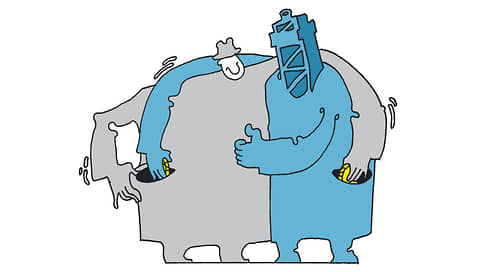The Ministry of Energy is discussing a return to full payments to oil workers for the damper
[ad_1]

As it became known to Kommersant, in the context of the crisis in the fuel market, the Ministry of Energy is trying to intensify the discussion on the return of full payments for the damper, which have been halved since September. The damper remains a key tool to reduce the wholesale cost of gasoline and diesel fuel, which are holding at historical highs. However, it is still unclear how the budget expenses will be compensated in case of a return to full payments. The Ministry of Finance told Kommersant that they are not yet aware of such an initiative.
The Ministry of Energy is discussing with the industry a return to full payments for the damper in the face of record fuel prices, several Kommersant interlocutors familiar with the discussion said. In the summer, in the face of a shortfall in oil and gas revenues, the amount of the payment for the damper for gasoline and diesel fuel was halved from September until the end of 2026. Back in the spring, the plans of the Ministry of Finance to reduce the damper provoked an increase in wholesale prices for gasoline, which in August almost daily updated their historical highs. The cost of diesel fuel is also at maximum levels. On September 4, AI-92 and diesel fuel rose in price by 0.3% and 0.4%, to 64.8 thousand and 68.3 thousand rubles. per ton, respectively. According to Reuters estimates, the total payments to oil companies under the August damper could amount to about 280 billion rubles.
The Ministry of Finance told Kommersant that such proposals were not discussed in the ministry. “We are not aware of such initiatives,” they said. The Ministry of Energy did not answer “Kommersant”.
Three interlocutors of Kommersant argue that the Ministry of Finance is conceptually not opposed to returning to full payments for the damper, but wants to be compensated for additional budget expenses, so the discussion continues.
The traditional option in such a case is an increase in the MET, but the industry does not agree with this approach, since it can lead to a deterioration in the profitability of production and risks of a decrease in production, given the fact that in 2024, as a result of the completion of the tax maneuver, the MET rate should increase anyway . According to one of Kommersant’s interlocutors, it would be theoretically possible to reduce the maximum discount to the price of Brent, which is used to determine the price of Urals for tax purposes (now $20 per barrel). Moreover, according to the Ministry of Finance, the actual discount in August amounted to less than $13 per barrel.
Sources of Kommersant do not yet know when the changes may come into force, suggesting the return of a full damper. But even in theory, changes are possible no earlier than November, and then only if the amendments to the Tax Code are adopted in September.
The return of the damper is almost the only possible measure to reduce wholesale fuel prices. At the same time, the situation may worsen in September due to the fact that now the wholesale cost of gasoline and diesel fuel is above the level at which the damper is paid.
In other words, fuel should either fall in price in September (for which there are no prerequisites yet), or oil companies will have an incentive to raise prices even more in order to at least partially compensate for the loss of the damper.
In August, oil companies failed to increase refining, while in September its volume will decrease due to scheduled repairs, which will create pressure on the market, even despite the end of the main holiday season. According to several interlocutors of Kommersant, the Russian Federation managed to agree with Belarus on the supply of certain volumes of fuel to the Russian market. According to one of Kommersant’s interlocutors, this was achieved through discounts on oil supplied by the Russian Federation.
In the event of a return to a full damper, it will be necessary to admit that the government has no other leverage to influence the situation with record wholesale fuel prices, independent expert Boris Lutset believes. With the return to the full damper, there are also risks of another unscheduled increase in the tax burden in the industry, and in case of compensation due to the “frontal” increase in the severance tax, small independent oil companies may again be in a worse position than large oil companies, the expert believes. “Unfortunately, the time for a balanced and balanced decision has already been lost, given the completion of the tax maneuver and the need to mobilize additional budget revenues,” Mr. Lucet believes, noting that the Ministry of Finance “shouldn’t repeat the mistake of making basic fiscal decisions in a hurry over and over again hand without proper public discussion with all stakeholders.”
[ad_2]
Source link





